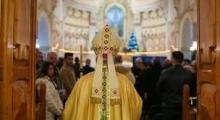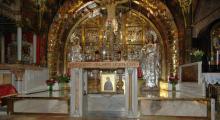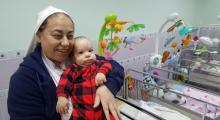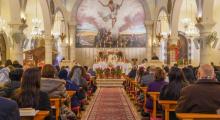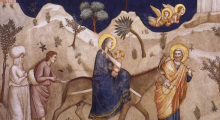Issued by the Catholic Center for Studies and Media - Jordan. Editor-in-chief Fr. Rif'at Bader - موقع أبونا abouna.org
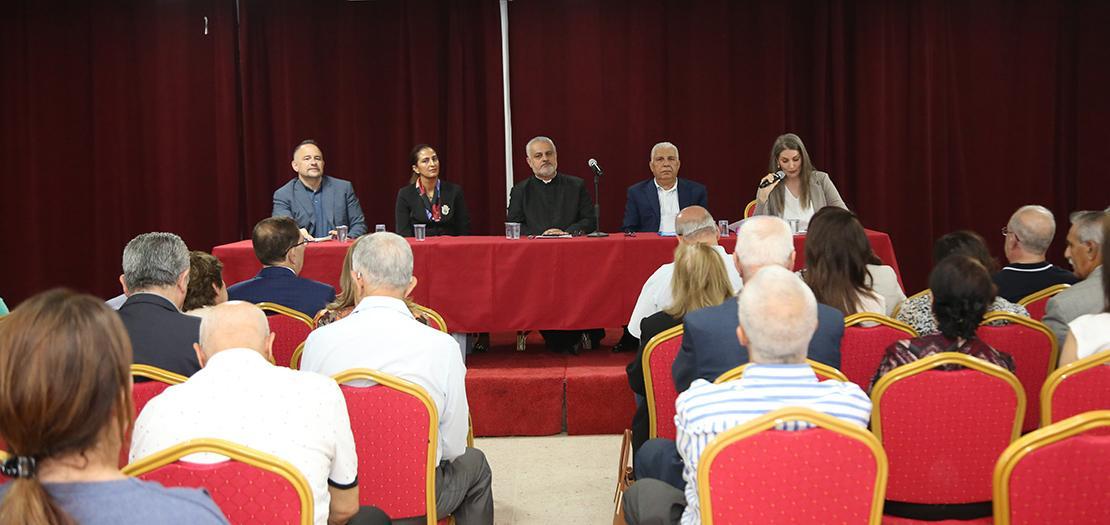
The Cultural Committee of the Sacred Heart of Jesus Church in Tla’ Al-‘Ali, western Amman, has held a panel discussion on the upcoming parliamentary elections.
At the outset of the gathering, parish priest and Director of the Catholic Center for Studies and Media Fr. Dr. Rif’at Bader welcomed the attendees and pointed out the role of the Church in encouraging young people and citizens in general to take part in the electoral process whether by nomination or by casting their votes on the polling day. He stressed that true and valid citizenship is based on the principle of a balance between rights and duties, as the citizens who demand their rights through legitimate means also have a duty to choose their representatives in the legislative and supervisory authority.
Fr. Bader said that the Church urges its faithful, and the citizens in general, not to stand by idly, but to be involved in the political process, and consequently to draw a beautiful picture of the next parliament. He pointed out that Christians in Jordan have nine seats, as they will have seven local seats and two seats on the national (party) lists. He continued that this new experience also needs support and encouragement that can be attained through effective, active, and positive participation.
The panel discussion was moderated, at the Karam Imsih Hall, by head of the Cultural Committee in the Church Dr. Hiba Abbasi, who referred in her opening address to the speech of His Majesty King Abdullah II marking his silver jubilee in which he stressed that Jordan is steadily moving towards consolidating the foundations of a modern state based on the rule of law, justice, and equality. She added that the national celebrations take place at a time when Jordan is witnessing radical transformations in the structure of the Jordanian parliament with the adoption of the new party changes, a moment that embodies the shared aspirations of Jordanians towards establishing genuine democracy.
Abbasi went on to say that we in Jordan live in a stage that demands all citizens to work hand-in-hand to build a better future. His Majesty the King stressed in his Discussion Papers, from the second one to the fifth one, the importance of parties and their role in reform. He also stressed that reform is an ongoing and unlimited process, indicating that the active and effective party life is the basis for strengthening the democratic process and consolidating popular participation in the decision-making process.
Member of the Lower House of Parliament Omar Naber pointed out that the new law has allowed any thousand people who share the same ideology to establish a party, providing that they are located in at least six governorates.
Member of the Lower House of Parliament Dina Al-Bashir stressed His Majesty King Abdullah II's views on the necessity of restoring the role of institutions in the Jordanian state so as to preserve their usual and exceptional role, by launching a modernization system that calls for the presence of parties and for collective work in the parliament so that its role becomes supervisory and legislative, while presenting implementable programs which would develop institutions and restore their glory, so that parties would become an essential part of governments while implementing programs for which individuals are held accountable and their performance evaluated.
Furthermore, Nabil Ghishan said that the presence of 60,000 Christian voters in Amman in its three districts, after conducting the automatic transfers, may lead to the disappearance of some seats allocated to Christians in the governorates in favor of Amman. He continued that the process of encouraging Jordanians to vote is linked to their views of sincerity in the polling process. Yet, he asserted that the elections remain a constitutional entitlement in which everyone must participate, so as reproduce political elites and expand popular participation in decision-making, in addition to the fact that electing a strong parliament protects Jordan against external and internal pressures.


